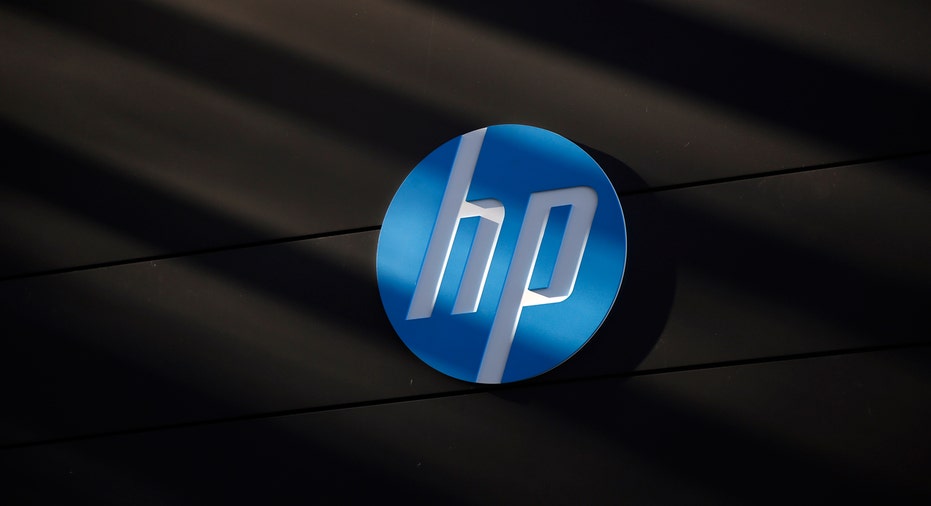HP is Not a Turnaround – It’s a Bloodbath

Hewlett-Packard (NYSE:HPQ) announced on Tuesday that it would cut about 30,000 jobs as it splits into two companies. That brings the total number of layoffs under CEO Meg Whitman to 85,000. Let me put that staggering number in perspective for you.
If you add all the employees that lost their jobs as a result of the Enron, WorldCom, and Adelphia bankruptcies to the 30,000 that Carly Fiorina laid off as CEO of HP during the dot-com demise, the total would fall far short of the number of jobs shed by Whitman.
And yet, in a meeting with analysts, the former eBay CEO (NASDAQ:EBAY) almost appeared to be taking a victory lap when she answered a question about acquisitions by saying, “We haven’t done anything stupid in the last four years, and we don’t intend to do anything stupid in the future.”
She was probably referring to former CEO Leo Apotheker’s botched acquisition of Autonomy – not the first time Whitman has made thinly veiled references to predecessors as a not-so-subtle way of reminding folks that she inherited HP’s mess and is doing yeoman’s work with the hand she was dealt.
She’s certainly not alone in that sentiment. The media has long faulted Fiorina, Mark Hurd, Apotheker, and in rare lucid moments the company’s chronically dysfunctional board of directors for the great unraveling of a brand that once stood for Silicon Valley innovation. And Whitman has gotten a pass ... until now.
While the board deserves every bit of credit for turning HP into what New York Times columnist James Stewart once called a “laughingstock in Silicon Valley,” and Apotheker was hands-down the most inept tech CEO of the past decade (right up there with former JC Penney chief Ron Johnson who came from Apple), Whitman alone owns this failed turnaround-turned-bloodbath.
First, let’s talk about Fiorina. Granted, she let IBM (NYSE:IBM) run away with the IT services business by failing to follow through with her planned acquisition of PricewaterhouseCoopers, opting instead to double down on PCs by merging with Compaq. Nevertheless, she reorganized and streamlined the stodgy old company and led it through the most devastating technology industry and stock market meltdown in history. And her tenure ended a decade ago.
Mark Hurd, who came next, may have slashed 15,200 jobs soon after taking the helm in 2005. And the former NCR chief routinely gets knocked around for being a ruthless cost-cutter, which he was. But he also led HP to market share gains across all core businesses and five years of increasing profits and revenue growth – through the great recession from 2007 through 2009. Hurd, was essentially forced out by a bitterly divided board over a bizarre set of circumstances, but landed on his feet and is now co-CEO of Oracle (NASDAQ:ORCL).
And while Hurd’s acquisition of EDS was certainly not well executed, it was the right move after IBM snatched up PwC. More importantly, EDS formed HP Enterprise Services, a core business unit of the new HP Enterprise Inc., which will include the vast majority of HP’s employees and about $50 billion in revenue when it splits from HP Inc. – the PC and printer company – on November 1.
Now about Apotheker. The last thing I want to do is insinuate that anything positive came out of his brief but disastrous tenure as CEO. But everything he did – from the Autonomy acquisition to his bull in a china shop attempt at turning HP into a software company – was approved by the board of directors, which included one Meg Whitman.
To its credit, the board did eventually wake up, realize it had created a monster and ousted Apotheker, but instead of taking its time to execute a proper search for a replacement, it turned right around and, within a matter of days, appointed Whitman as CEO.
And here we are, four years into Whitman’s supposed turnaround. And I have to say that $20 billion or so in write-offs and 85,000 in announced workforce reductions is starting to look a lot like Jonathan Schwartz’s many attempts at restructuring Sun before finally biting the bullet and selling the company to Oracle.
Meanwhile the write-offs, the layoffs and the tactical plan to split the company in two won’t solve HP’s real problem: that it’s core businesses are undifferentiated and facing brutal competition from the likes of Oracle, Microsoft (NASDAQ:MSFT) and Amazon (NASDAQ:AMZN) in the Cloud, IBM in IT services, Lenova in PCs, and the usual suspects in printers.
What HP has long needed is a strategy to differentiate itself from the pack, but what Whitman has done looks a lot more like technical window dressing for Wall Street. Maybe her strategy really was to not do “anything stupid” for four years. Crazy as it sounds, that’s pretty much the way it looks. And it’s no way to turn around a company.
Whitman has gotten a pass for too long. This is her mess now.



















